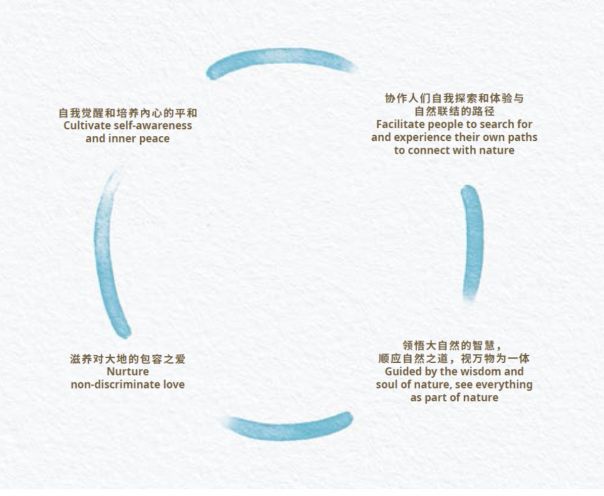As of May 2021, PCD has been founded for 20 years. To celebrate the 20th anniversary, we produce The Partnerships for Community Development Annual Report 2019-2020 to share with partners our work which is guided by the four elements of our Theory of Change, namely Nurturing Community Facilitators, Facilitating Cultural Reflection, Building Inner Strength and Network Building. Our purpose is to re-examine the framework of traditional development programmes and reflect on the broader questions: What is social change? How does change happen? What is our role?... The following is an excerpt from the overview.

When PCD was established in May 2001, society faced a widening income and rural-urban gap, and severe environmental degradation. Development was primarily defined by economic growth, and from the start, we were uncertain that it could ever bring about a sustainable future for all. Thus, we began our search for alternatives.
We asked ourselves: What kind of changes do we seek to bring? What outcomes do we strive for? In our very first discussion on organisational strategy, we put forth beliefs that would eventually become our Theory of Change. Community facilitators compel social transformation. They gain self-recognition through identifying with their local culture, communities and environment. Sustainability is built on love for all living beings. Humans and nature are interdependent. Change happens when community members collectively reflect on their potential and initiate their own action.
Our search for alternative perspectives led us to re-examine the framework of traditional development programmes. We have come to realise that social transformation is a complex process involving an interplay of factors, and that the causes and consequences are not often clear-cut, contrary to linear intervention-outcome assumptions. Further, we have seen the term ‘development’ to mean social change, rather than an aggregation of projects. The broader questions of What is social change, How does change happen, and What is our role, drove us to seek new ways to understand our work.
Nurturing Community Facilitators
“Nurturing community facilitators” was acknowledged in our first Strategic Plan (2002-2005), and we have expanded on its meaning and significance in successive planning processes.
This focus is based on our belief that individual and group actors – facilitators – are agents of social change. A facilitator, who may be from within a community or an outsider, is not a person-in-charge or leader, just as the individuals and communities involved in projects are not passive followers. Everyone is a participant, with mutually nourishing relationships among facilitators, individuals and communities.
From the start, we have considered facilitators’ capacity as being beyond project management. They play an instrumental role in transforming individuals within groups, building group capacity, and making self-initiated actions possible, and we value and support their personal development. Their critical awareness of problems caused by the mainstream development model is crucial in any analysis, and in all of their work with communities to determine what changes to strive for. Since facilitators face different contexts and are at different growth stages, there is no standard model for their capacity building; yet, the focus has always been on broadening their ecological, social and cultural perspectives, so that they can explore locally appropriate methods and solutions.

Facilitating Cultural Reflection
Culture was discussed in our first Strategic Plan (2002-2005). It played a part in early programmes, such as promoting traditional knowledge in rural livelihood projects, or advocating Community Supported Agriculture in cities. With experience, we gradually came to see culture as an integral driving force for change. In our second Strategic Plan (2005-2008), we placed an emphasis on restoring cultural values: we introduced cultural reflection into our programme strategy and, eventually, mainstreamed the concept into all programmes.
Culture, taken broadly, points to every aspect of living. It is the worldview and values that support norms and institutions, and shape behaviours and actions. It is the construct behind the current ecological and social crises, and in this sense, social change through building regenerative cultures is truly transformative.
Working with ethnic communities enriches our understanding of culture. We see culture being manifested holistically in local customs, knowledge systems, values and beliefs. It shapes how community members view their relationship with the environment, informs interpersonal relationships, and frames the imagination of what makes a good life. We also acknowledge its dynamic nature. Given culture is always changing, we do not seek to preserve specific forms.
Cultural reflection is an approach and a process: communities rediscover their culture and articulate its core values – the essence that remains unchanged. Coupled with a critical analysis, these core values guide communities as they make decisions and devise innovative solutions for the future. In urban settings, the approach involves the re-examination of the mainstream development model, rural-urban relationships, consumerism, the human-nature relationship, and more.

Building Inner Strength
Through interactions with local, regional and international partners and communities, we realise that if our focus is on the change of mindsets, it should come from the heart, out of an inner force of serenity and compassion. The heart-based approach, put forward in the 2010-2015 Strategic Plan, describes a process of inner transformation:

Paths to inner strength vary for different people. Some obtain their strength through reconnecting with their cultural roots and personal and collective history; for others, their source is a deep inner connection with nature. What is common – and necessary – is going beyond rational thinking and developing perception and intuition, from the head back to the heart. Change happens when we listen to the heart and allow self-awareness, understanding and acceptance to grow.
When PCD discussed our long-term direction in 2013, the heart-based approach transformed into “building inner strength of community facilitators”. We recognise that a reconnection with nature – appreciating its wisdom and rediscovering our place in relation to all living beings – constantly nourishes individuals and communities as they act for sustained positive change. This understanding has driven us to develop learning approaches such as land ethics and deep ecology: we seek to create transformative experiences of oneness with nature.

Network Building
The search for alternatives is often a lonely journey. People need to connect with others for bearing witness and support, and change from the personal to societal also requires relationship building and collective action. Thus, network building has become an important work approach for PCD. The networks we support are local, national, regional and international, have different themes, and include a range of members — individuals and organisations, citizens’ groups and grassroots organisations, government departments and universities and research institutions… we value this diversity!
As we consider our long-term direction, instead of picturing PCD at the centre, we see ourselves as one member of a large sustainable living network in the making. The goal of network building is to strengthen the capacity of grassroots communities and to include even more partners, from all walks of life, to join the movement.
Years of exploring network building has convinced us that the key is to create more connections, not build boundaries. We work to create a healthy environment where members with varied pursuits can all grow. A vibrant network is one that builds on a common vision and is sustained by multiple nodes of intervention. This stimulates active participation, weaving a web of close relationships for meaningful developments to emerge.

The 20 years of PCD history is like the life story of a river. Starting as a brook, we picked up nutrients as we flowed and were joined by other streams with their own rich histories. The development of our current Theory of Change – Nurturing community facilitators, Facilitating cultural reflection, Building inner strength, and Network building – is a result of reflections of our work and inspirations from many disciplines and traditions. We see ourselves as a dynamic river now, a diverse body of water, benefitting greatly from the emphasis of relationships in ecological thinking, the non-anthropocentric view of deep ecology, the holistic understanding of culture from traditional communities, and learning systems such as eco-village design education, permaculture, selfawareness and social transformation, to give but a few examples. How change happens is a question that will remain close to our heart, motivating and guiding every aspect of our work.
Refreshing as the wind, flowing as water, firm as mountains, nourishing as earth… our Theory of Change will continue to guide our journey – not for the sake of reaching a destination, but for discovering more companions along the way.
(Excerpt from The Partnerships for Community Development Annual Report 2019-2020)

